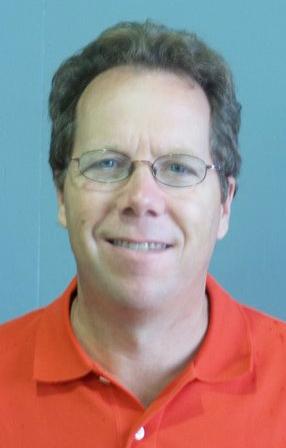
(Editor’s note: Dave Ockenfels gave a talk to his son’s confirmation class at St. Mary Parish in Riverside last month.
St. Mary’s pastor, Father Rich Adam, published a written version of the talk in the bulletin/newsletter for his cluster parishes: St. Mary’s, Holy Trinity in Richmond and St. Joseph in Wellman. Fr. Adam said many people were impressed with the father’s emphasis on the importance of faith and confirmation. We are sharing a condensed version of Ockenfels’ talk with his permission.)
Youth Minister Derick Cranston and Barb Duder are doing a great job instructing the 10th grade confirmation candidates. I enjoy attending the class with our son. It gives me the opportunity to learn more about the Catholic faith and shows me that I have a great deal to learn.
During one class we attended Mass at St. Mary’s where three babies were baptized. Listening to the parents promise to raise these children in the Catholic faith caused me to reflect. We have such a small window of time to build the foundation of our children’s faith. If we do not establish that foundation for our children they will be easily swayed and misled by others. New Age religions, ideas and fads come and go and we need our children to be well grounded and strong in their Catholic faith. They need to be able to see that these trendy ideas pale in comparison to what they already possess in their Catholic faith.
By teaching our faith to our children and setting a good example, we can keep them from drifting to other religions or from going through life without any faith in God.
God has a special plan and a specific mission for each of us; we cannot be truly happy until we fulfill that mission. The vocation for some will be married life; some may be single and some may be called to religious life as priests, Brother, or Sisters.
Young adults of our Church need to discern what God has planned for them. If they do not know the Catholic faith and take time to pray it will be difficult for them to know what God is asking of them. Remember, we find true happiness in fulfilling his mission.
The promise we as parents made at our child’s baptism was not to drop our children off at CCD classes once a week and go to Mass at Christmas, Easter and the Sundays when there are children’s Masses! The promise we made was to educate them in the Catholic faith and give them a good example to follow. Are we keeping our promise to God and our children in teaching the faith?
That commitment requires us to learn and grow in our own knowledge of the Church. The more I learn about the Catholic faith, the more I want to know. Until a few years ago, I did not know about the five precepts of the Catholic Church. These minimum requirements state:
• You shall attend Mass on Sundays and holy days of obligation and rest from servile labor.
• You shall confess your sins at least once a year.
• You shall receive the sacrament of the Eucharist at least during the Easter season.
• You shall observe the days of fasting and abstinence established by the Church.
• You shall help to provide for the needs of the Church.
These precepts are available in more detail in the Catechism of the Catholic Church.
It is not unreasonable for the Church to have minimum requirements for its members. Every organization or group has a set of minimum standards for membership or to participate. Look at our society and its obsession with sports. Every team has rules of conduct and minimum standards. The individuals or teams that do the minimum do not win championships. Can you imagine the outcome for the team that showed up on game day without any preparation?
We can look at our professional lives in the same manner. Are entry-level workers placed in positions of management the first day on the job? No, they are given tasks they are capable of and trained to do more over time. If you ask men and women who have achieved managerial positions how they succeeded, they will consistently tell you it was through hard work and extra effort.
These same principles apply to our spiritual lives and learning our faith.
Our average life expectancy of 75-80 years is miniscule compared to eternity. Yet we spend the overwhelming majority of our lives pursuing everyday activities; we do the absolute minimum to secure our place in heaven with God. If we did the absolute minimum in our academic, athletic or career pursuits, would we not expect a less than desirable outcome? Why then, do we expect the greatest possible outcome — eternal life in heaven with our Lord — from doing the minimum in our spiritual lives?








